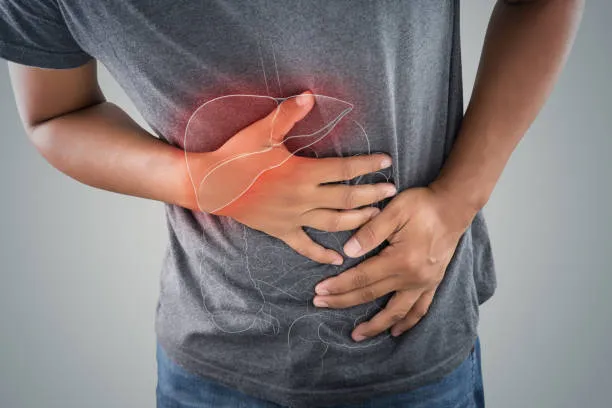Have you ever wondered whether your gallbladder is secretly planning a revolt against your digestive system? Are you curious about the mysteries it conceals and what it may be causing? Come along with us as we explore Gallbladder surgery in Riyadh. Learn More about it.
Procedure Time
Few Minutes
Downtime
none
Back to Work
One Week
Results
Long Lasting
Quick Facts
- Risks: None
- Cost: 25,000 SAR to 30,000 SAR
- Type of treatment: Minimally invasive
- Outcomes: Long-lasting
- Back to work: one week
Gallbladder Surgery!
The surgical treatment known medically as cholecystectomy is intended to treat problems pertaining to the gallbladder, a little organ situated beneath the liver. Bile, a digestive fluid produced by the liver that helps break down lipids, is stored and concentrated in the gallbladder, which plays a vital role in the digestive system.
Results
Cholecystectomy, another name for this, is a common and generally safe technique used to treat gallstones or other gallbladder-related problems. After this procedure, patients frequently report feeling better thereafter, with relief from the pain, nausea, and digestive discomfort brought on by gallbladder issues. Since the liver directs the bile it produces into the small intestine, the removal of the gallbladder usually has little effect on the body’s capacity to digest food.
Ideal Candidate
- Symptomatic Gallstones: Patients who are suffering from gallstone-related discomfort, inflammation, or infection are frequently good candidates for surgery. Severe stomach pain, nausea, vomiting, and bloating are possible symptoms.
- Recurrent Gallbladder Attacks: In order to avoid more difficulties, surgery may be advised if a person experiences gallbladder attacks frequently.
- Complications: It may result in pancreatitis, infection, or inflammation (cholecystitis). Surgery can be required in some situations to treat these problems.
- Non-functioning Gallbladder: It may occasionally experience malfunctions that result in enduring symptoms. It might be advised to remove the gallbladder in these circumstances.
Benefits
- Pain Management: relieves chronic upper abdominal pain related to gallbladder problems.
- Better Digestive Process: improves digestive processes by eliminating the cause of disturbances caused by gallstones.
- Freedom of Lifestyle: permits the return to an unrestricted diet and a normal, pain-free life.
- Avoidance of Adverse Events: reduces the possibility of consequences from untreated issues.
- Symptomatic Relief: eases discomfort and nausea symptoms, resulting in an improvement in general well-being.
Pre Care
- Pre-operative Evaluation: To ascertain whether a patient is a good candidate for surgery, evaluate their general health and medical history.
- Blood Testing: Perform routine blood testing to make sure proper clotting is occurring and to look for any abnormalities.
- Imaging Studies: Use imaging techniques to assess the gallbladder and surrounding structures, such as CT or ultrasound scans.
- Fasting: To reduce the chance of complications, advise the patient to fast for a predetermined amount of time prior to the operation.
Procedure

- Anesthesia: To guarantee that the patient is unconscious and pain-free during the procedure, general anesthesia is given to them.
- Incision: The abdomen is usually incised with four small incisions, often known as keyhole incisions. These are where the surgical instruments enter the body.
- Insertion of the Trocar: The incisions are used to implant trocars or hollow tubes. They give access so that a laparoscope and other surgical equipment can be inserted.
- Insertion of the Laparoscope: One of the trocars is used to implant the laparoscopic surgery, which is a tiny tube equipped with a camera and light. It enables the gallbladder and surrounding structures to be seen on a monitor by the surgeon.
- Insufflation: To increase visibility and provide the surgeon with more room to work, carbon dioxide gas is injected into the belly.
- Identification and Artery and Cystic Duct Clipping: The surgeon locates the gallbladder’s supply routes, the arteries, and cystic ducts, and then cuts or clips them to isolate the gallbladder from the liver.
- Dissection: It is carefully removed from the liver by cutting its attachments.
- Extraction: One of the tiny incisions is used to remove the separated gallbladder. Sometimes one of the incisions needs to be made bigger in order to accommodate the extraction.
- Closure: A sterile dressing is placed and the incisions are sewn up using stitches or staples.
AfterCare
- Observe the post-operative guidelines: Follow the particular instructions for recovery provided by your surgeon and medical staff. Adhere to the directions on any given medication, including antibiotics and painkillers.
- Pain Control: Take care of your pain and discomfort as your doctor has suggested. Prescription or over-the-counter painkillers may fall under this category. Aspirin and non-steroidal anti-inflammatory medicines (NSAIDs) can raise your risk of bleeding, so avoid using them unless your doctor has approved them.
- After an Incision: Maintain a dry and clean incision site. Observe any particular wound care recommendations that may be given.
Gallbladder Surgery Cost in Riyadh
Gallbladder Surgery
Starting FromGallbladder Surgery
StandardThe normal cost range for Gallbladder Surgery in Riyadh, Enfield Royal Clinic is between 25,000 SAR to 30,000 SAR. It’s important to remember that the precise cost may change based on how customized your treatment needs to be. During your initial meeting, our specialists will assess your unique requirements.
Factors Affecting the Cost
- Type of surgery
- Surgeons fee
- Surgeons experience
- Location
Your Path to Wellness Begins with Precision Gallbladder
Using state-of-the-art technology, Riyadh’s Chin Liposuction has access to top medical providers. Our team is committed to giving patients the best care possible and helping them reach their objectives.
Book us Now!
We strongly advise setting up a consultation with our knowledgeable and committed staff when you’re prepared to go on to the next stage. Please contact us if you would like more details about Gallbladder Surgery in Riyadh.
FAQs.
After surgery, pain is frequent, but it is typically tolerable with recommended medicine.
To facilitate digestion, a low-fat diet is advised initially. Most people are able to return to a regular, nutritious diet with time.
Depending on the intricacy of the situation, It usually takes one to two hours, although open surgery may take longer.
Although recovery timeframes vary, following laparoscopic surgery, many patients are able to return to their regular activities in a week or two.
Relevant Treatments.
Relevant Treatments.

Laparoscopic Surgery
Are you or a loved one in Riyadh in need of surgery? Take into account laparoscopic surgery for faster healing and minor pain. We detail laparoscopic surgery in this post, including what it is, who is the best candidate, and its many advantages. Get the Best Laparoscopic Surgery in Riyadh by learning about it and booking us right away!

Liver & Pancreas Cancer Treatment in Riyadh
Life is a journey, and sometimes we face overwhelming obstacles that put our fortitude and perseverance to the test. The diagnosis of liver or pancreatic cancer is one such difficulty. Learn more about Liver and Pancreas Cancer Treatment in Riyadh.
Relevant Treatments.

Gallbladder Stone Surgery Cost in Riyadh
Let us together step into the understanding of the Gallbladder Stone Surgery Cost in Riyadh. With today’s latest methodologies, this is not just a method to treat your pain but it is a pathway to reclaiming your comfort and boosting up your energy. Get healthier and more effective lifestyles according to your desire but first, consult our team specialists to have effective results. About 80% of the patients with gallbladder stone symptoms will require operational methods to get relief. Sometimes the doctor commonly eradicates the complete gallbladder or just the stones from the bile ducts.



